Severe acne
Severe acne
Acne is one of the most common skin diseases. But it doesn’t affect all of us in the same way. While some people develop only a mild form of acne, others may develop more severe acne. According to the French National Authority for Health, severe acne affects about 1 in 5 people with the condition, and affects both adolescents and adults. Are you affected? Then you've come to the right place: here you can find expert advice and solutions!
What is severe acne?
There are different degrees of severity when it comes to acne. When the entire face (and sometimes the upper body) has a large number of comedones (the famous blackheads), microcysts, papules (red pimples), pustules (itchy spots) and/or larger "spots" anchored deep under the skin (called nodules), then the acne can be described as severe. In France, about 200,000 people are affected. This is a situation that shouldn’t be minimised from a health and psychological point of view, and it deserves appropriate care.
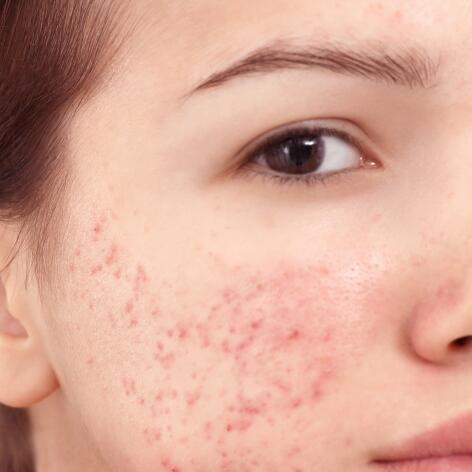
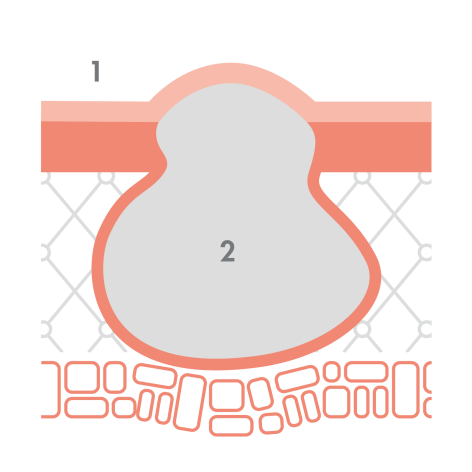 1. Epidermis 2. Over-inflammation or inflammation
1. Epidermis 2. Over-inflammation or inflammation
Forms of severe acne
Severe acne comes in many forms.
Nodular acne
Nodular acne (also called nodulocystic acne) and its advanced form, acne conglobata, are the most common. These forms begin in puberty as per the norm, and progressively spread to the neck, shoulders, upper body and sometimes the buttocks... They are characterised by large comedones which very quickly become inflammatory with the formation of nodules and cysts, which can fuse and cause significant scarring. These types of acne are more likely to occur in boys, and in people with a family history of acne.
Acne fulminans
This is a more severe form of acne, but fortunately it's rarer. It appears suddenly, mainly on boys in their teens, and is accompanied by extra-cutaneous signs such as fever and muscle pain.
The more severe, deep and hard the inflammation, the greater the risk of scarring.
Limiting scar formation
Scars are a major complication of severe acne. They are worsened by all factors that delay healing, such as touching lesions too much. Acne scars can have a psychological impact that shouldn’t be overlooked either, leaving marks on self-esteem as well as the skin. Fortunately, it is possible to limit the occurrence of scarring with early management.
Severe acne: a real psychological impact
Some scars are invisible. Severe acne is a condition that affects the emotions: according to a survey conducted by the Pierre Fabre laboratory and the CSA institute, 87% of those affected feel that it has affected their daily life, particularly when it comes to their relationships with others. It is therefore important not to underestimate the psychological and social impact.
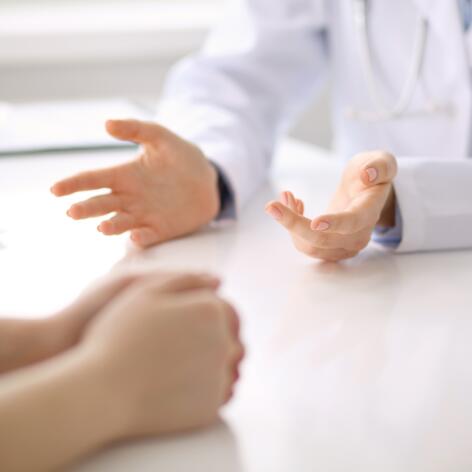
FRIENDLY (AND EXPERT) ADVICE
As a parent, you evidently have a role to play in helping and supporting your teenager. It is important that they feel heard and understood. Be attentive and don’t underestimate their feelings. Because while you know that acne is temporary, for your child it can seem like it's forever. The best time to talk about acne is when you’re alone and won't be disturbed. Talk about the subject simply, reassure them that there are effective solutions and, if they feel the need, offer to go with them to the dermatologist. Teenage acne - Supporting your teenager as a parent
What’s the best treatment for severe acne?
The first thing to do is consult your dermatologist. The earlier severe acne is managed, the better the chance of treatment. Treatment will probably involve taking isotretinoin orally (a vitamin A derivative). This medicine is very effective, but it leads to very uncomfortable dry skin. Gentle hygiene, moisturising and sun protection... Adopting and maintaining good daily hygiene will help you prevent the unwanted effects of isotretinion and feel better about your skin.
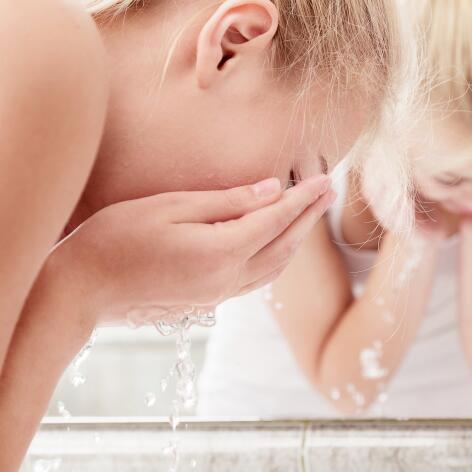
Our answers to your questions
To sort the true from the false: that's what we're here for.
Genetic factors can play a role in the development of acne. The risk of developing acne is greater if a family member has suffered from it. And if both parents have been affected, their child's acne is likely to be more severe.
This isn't such good advice. Too much hygiene can have the opposite effect. Over-cleaning dries out the skin and irritates it even more, which can make acne worse. Cleansing your face morning and night is enough. And be sure not to overuse face scrubs, either. Avoid using these types of products if you are taking isotretinoin, and instead choose products that are suitable for your dry skin.
The face is rich in sebaceous glands and is therefore particularly affected (especially the T-zone: forehead, nose and chin). But other parts of the body can also be affected, such as the shoulders, torso and back.
Our solutions to soothe acne-prone skin
Cleanance HYDRA skincare designed to help you feel more comfortable in your skin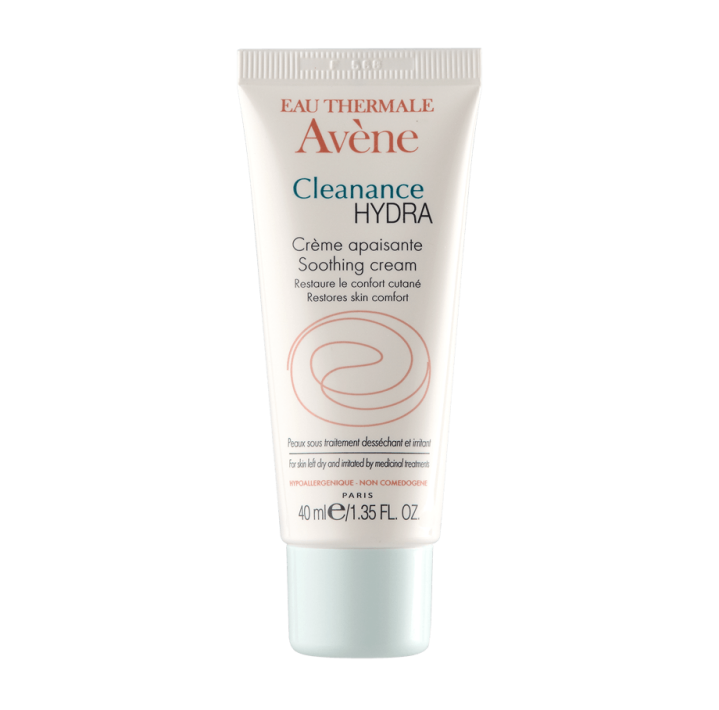
Cleanance HYDRA Soothing Cream
A small amount is enough, and the product is easy to spread over the skin. It leaves the skin soothed and moisturised all day long. Perfect for those on acne treatment.
MORE
How to fight severe acneNEWSLETTER
We’re always here for your skin!
All our tips for taking care of your skin day to day.
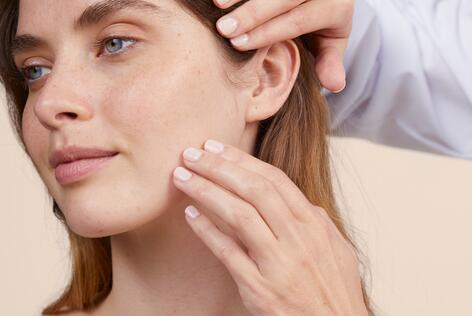
Which skin care routine should you adopt?
Identify what it really needs with the help of our experts and discover the most suitable skin care routine for you.
